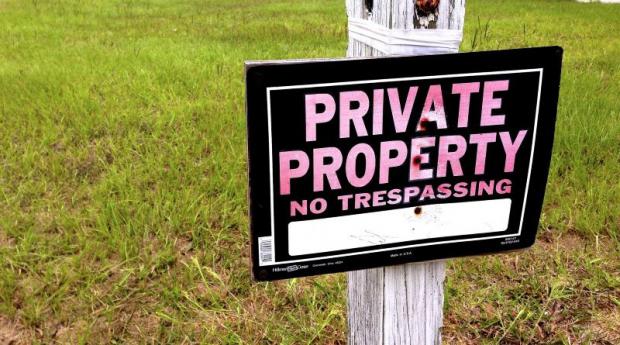
Breaking News
 How to Install Linux From Scratch
How to Install Linux From Scratch
 Why Populism Is The Real Reason For America's Political Atmosphere.
Why Populism Is The Real Reason For America's Political Atmosphere.
 Old Microwaves Are a Gold Mine Billions of People Don't Know This Secret
Old Microwaves Are a Gold Mine Billions of People Don't Know This Secret
 The Unlisted Landline Is Back in 2026
The Unlisted Landline Is Back in 2026
Top Tech News
 EngineAI T800: Born to Disrupt! #EngineAI #robotics #newtechnology #newproduct
EngineAI T800: Born to Disrupt! #EngineAI #robotics #newtechnology #newproduct
 This Silicon Anode Breakthrough Could Mark A Turning Point For EV Batteries [Update]
This Silicon Anode Breakthrough Could Mark A Turning Point For EV Batteries [Update]
 Travel gadget promises to dry and iron your clothes – totally hands-free
Travel gadget promises to dry and iron your clothes – totally hands-free
 Perfect Aircrete, Kitchen Ingredients.
Perfect Aircrete, Kitchen Ingredients.
 Futuristic pixel-raising display lets you feel what's onscreen
Futuristic pixel-raising display lets you feel what's onscreen
 Cutting-Edge Facility Generates Pure Water and Hydrogen Fuel from Seawater for Mere Pennies
Cutting-Edge Facility Generates Pure Water and Hydrogen Fuel from Seawater for Mere Pennies
 This tiny dev board is packed with features for ambitious makers
This tiny dev board is packed with features for ambitious makers
 Scientists Discover Gel to Regrow Tooth Enamel
Scientists Discover Gel to Regrow Tooth Enamel
 Vitamin C and Dandelion Root Killing Cancer Cells -- as Former CDC Director Calls for COVID-19...
Vitamin C and Dandelion Root Killing Cancer Cells -- as Former CDC Director Calls for COVID-19...
 Galactic Brain: US firm plans space-based data centers, power grid to challenge China
Galactic Brain: US firm plans space-based data centers, power grid to challenge China
Give Me Liberty or Give Me Property Rights!

Property, Freedom, and Society: Essays in Honor of Hans-Hermann Hoppe, edited by Jörg Guido Hülsmann and Stephan Kinsella.
Frank van Dun (FvD) offers his view on this question in his essay entitled Freedom and Property: Where They Conflict. If I may summarize his essay in the form of a question: if the objective of libertarian theorizing is anything other than securing freedom, then why are we wasting our time? He wouldn't say it that way, as I suspect he is too much the gentleman. Such concerns rarely stand in my way!
The question may prompt an obvious retort: what is the difference? The non-aggression principle, properly and fully applied, will result in freedom. FvD will disagree.
Libertarian theorists like to trace social and economic problems to coercive, usually government-imposed or sanctioned interventions in the free market or restrictions on the exercise of the libertarian rights of self-ownership, private appropriation and use of material resources, and exchange by mutual consent.
Thus, proper application of the non-aggression principle is all that is necessary for freedom to flourish.  Property, Freedom, and... Jorg Guido Hulsmann Best Price: $12.88 Buy New $14.39 (as of 05:25 EDT - Details)
Property, Freedom, and... Jorg Guido Hulsmann Best Price: $12.88 Buy New $14.39 (as of 05:25 EDT - Details) 
This is fine as far as it goes—but how far does it go? As we shall see below, respect for the above-mentioned libertarian rights is not in itself sufficient to guarantee the freedom of every person. There may be cases where there is a conflict between claims on behalf of one person's freedom and claims on behalf of another person's private property.
This is one of those "approach with real caution" essays; if one doesn't draw an absolute line around private property, where does one end on the slippery slope to full-blown socialism? By the end of this essay, you will find that I am taking the wimpy way out…at least for this day.
Where there is such conflict, which should prevail: your freedom or my property? I have in the past, and continue to believe today, that your freedom to have me bake a cake for you doesn't trump my property rights in my oven. FvD is working through an issue not as easily solvable as this…but still, the issue of the slippery slope must be recognized and dealt with.
As a libertarian – and for a libertarian – it is difficult to give up on this "freedom as property" notion. First of all, it is the basis for the most effective arguments against government interventions of all sorts (well, second, perhaps, to moral arguments…but few people listen to these). Second, it undercuts the idea that libertarian law is nothing beyond the most rigorous application of the non-aggression principle.
But is the objective property or is it freedom? What happens if there is a conflict, which one wins? If the winner is anything other than property – in every situation – then where does the line get drawn – and how powerful must the line be to avoid sliding down the slippery slope to hell?



